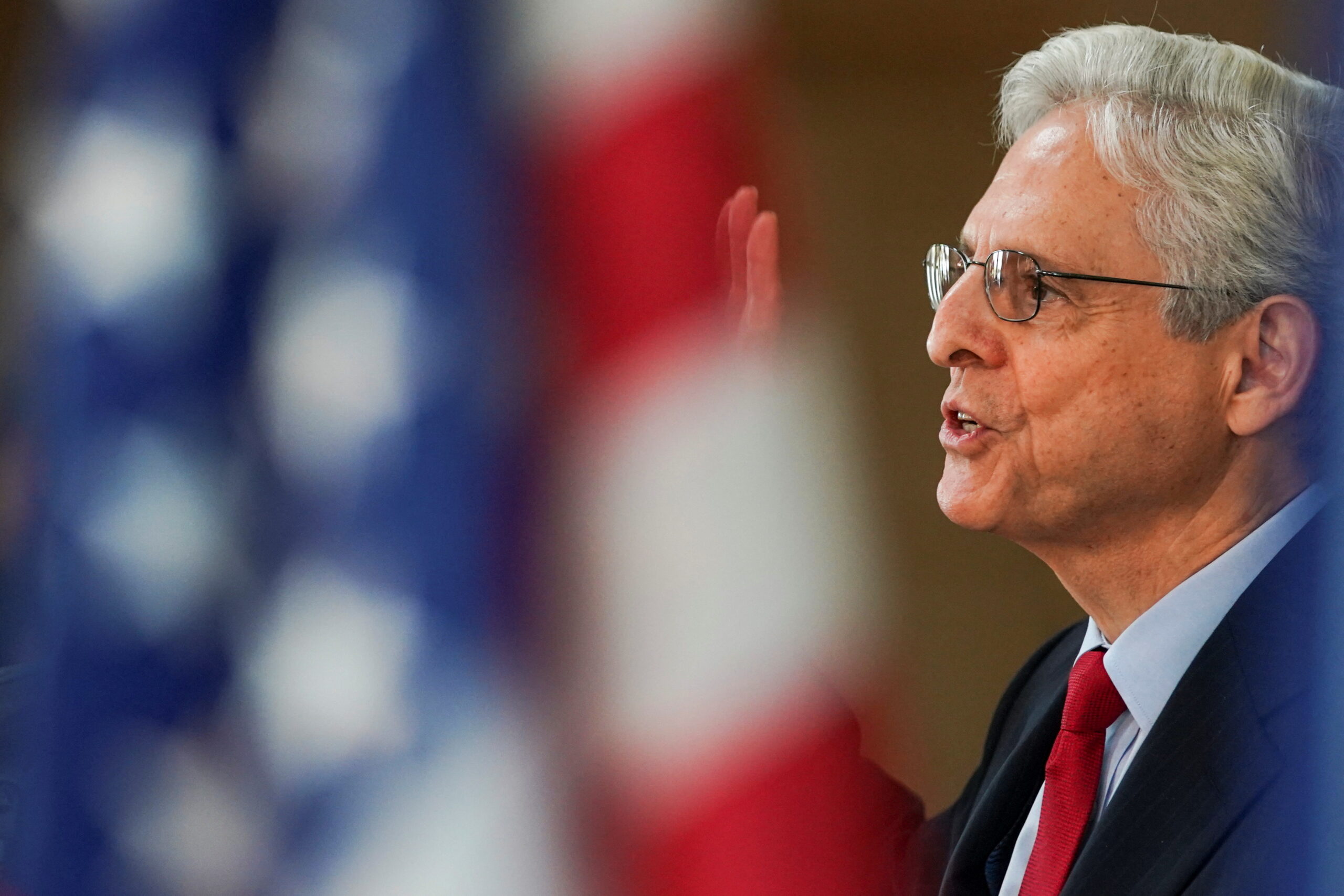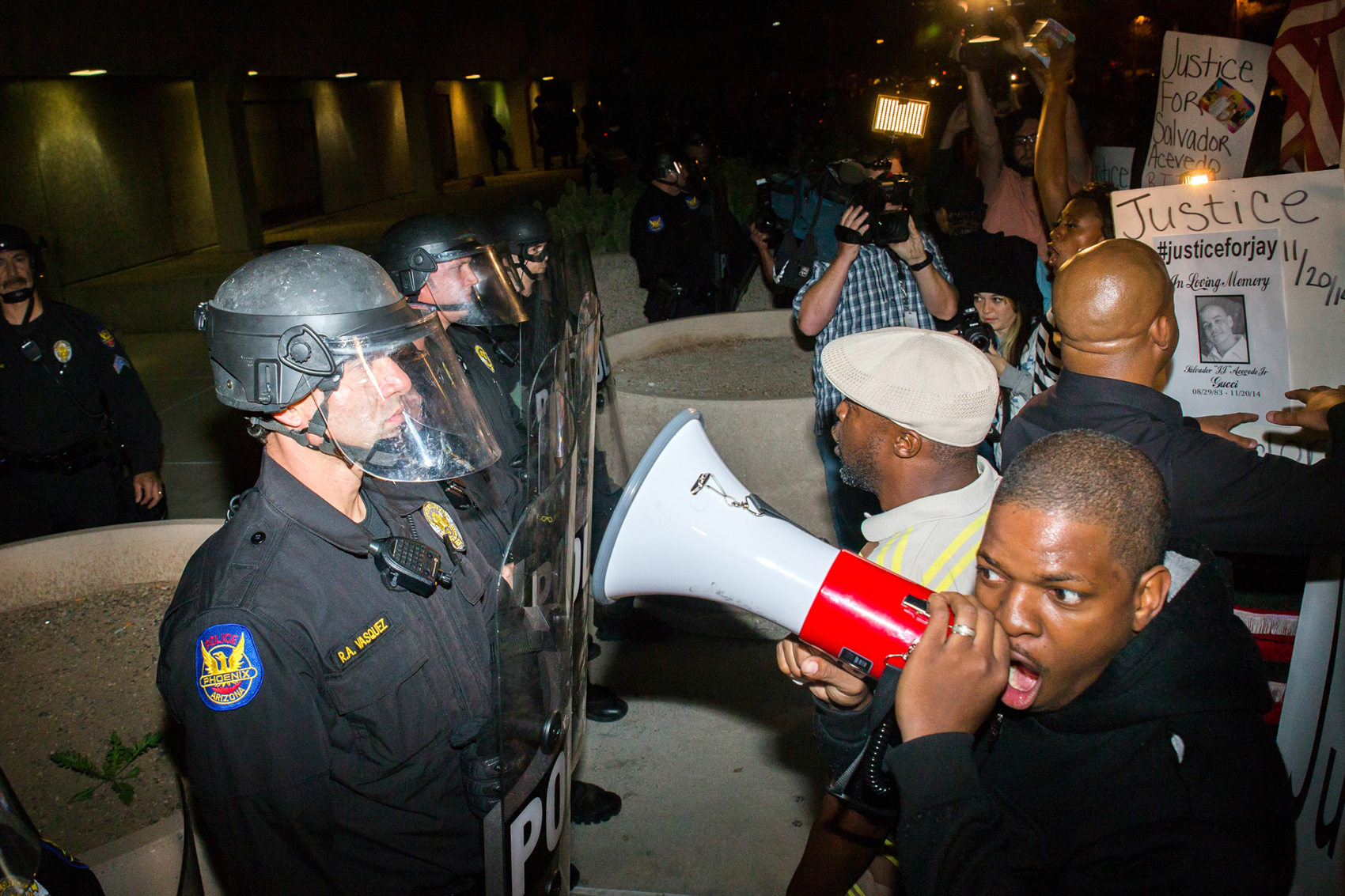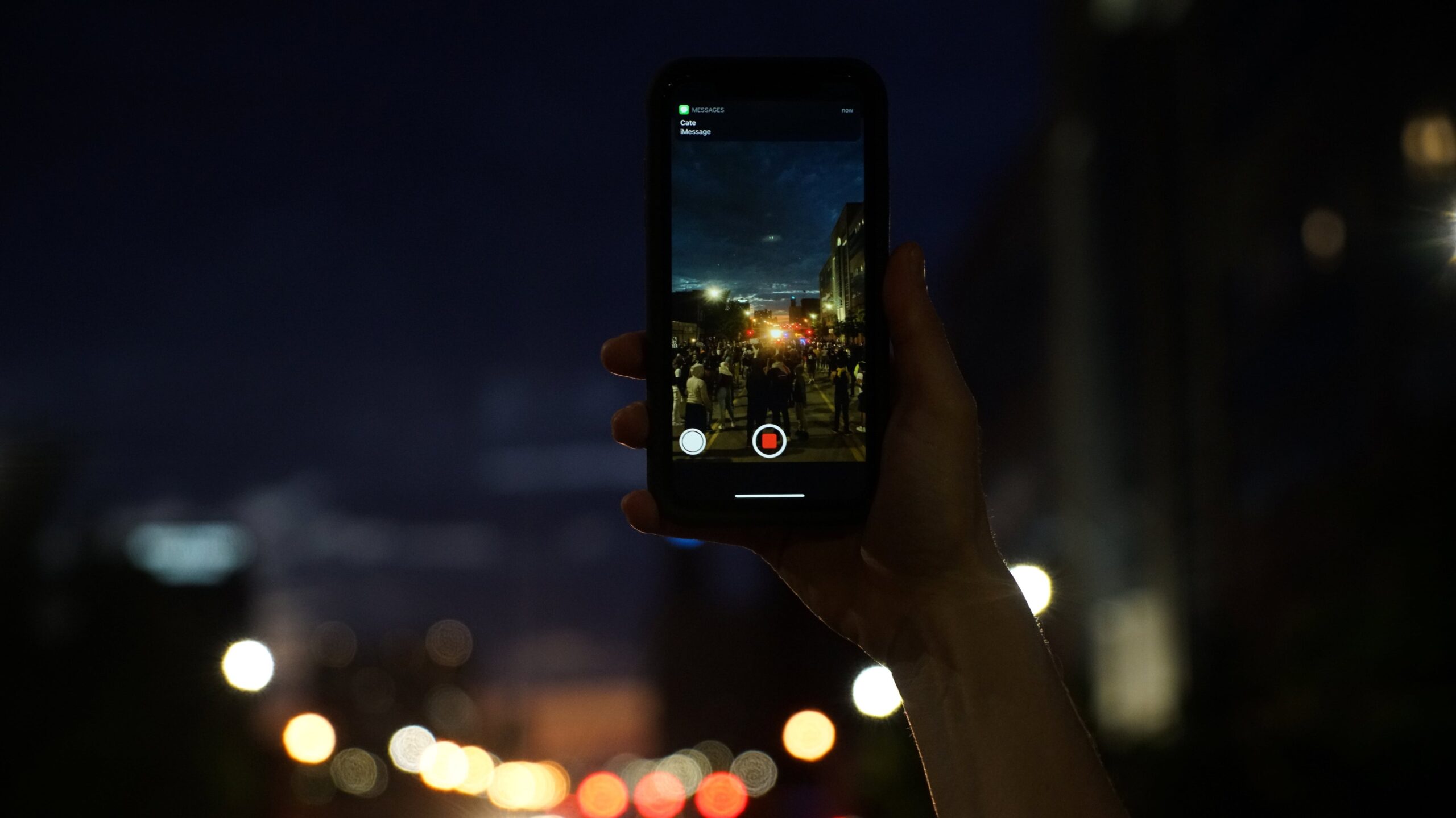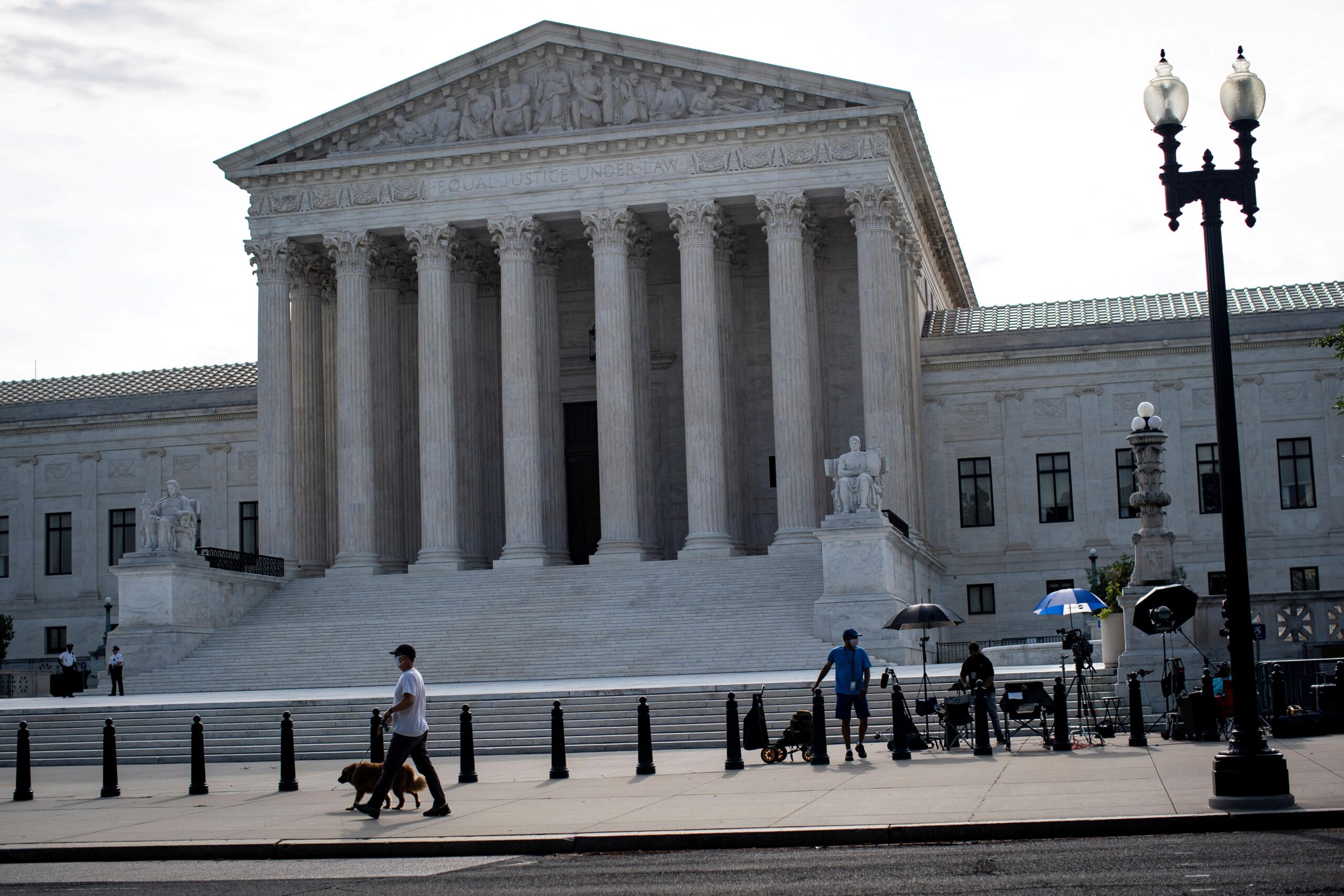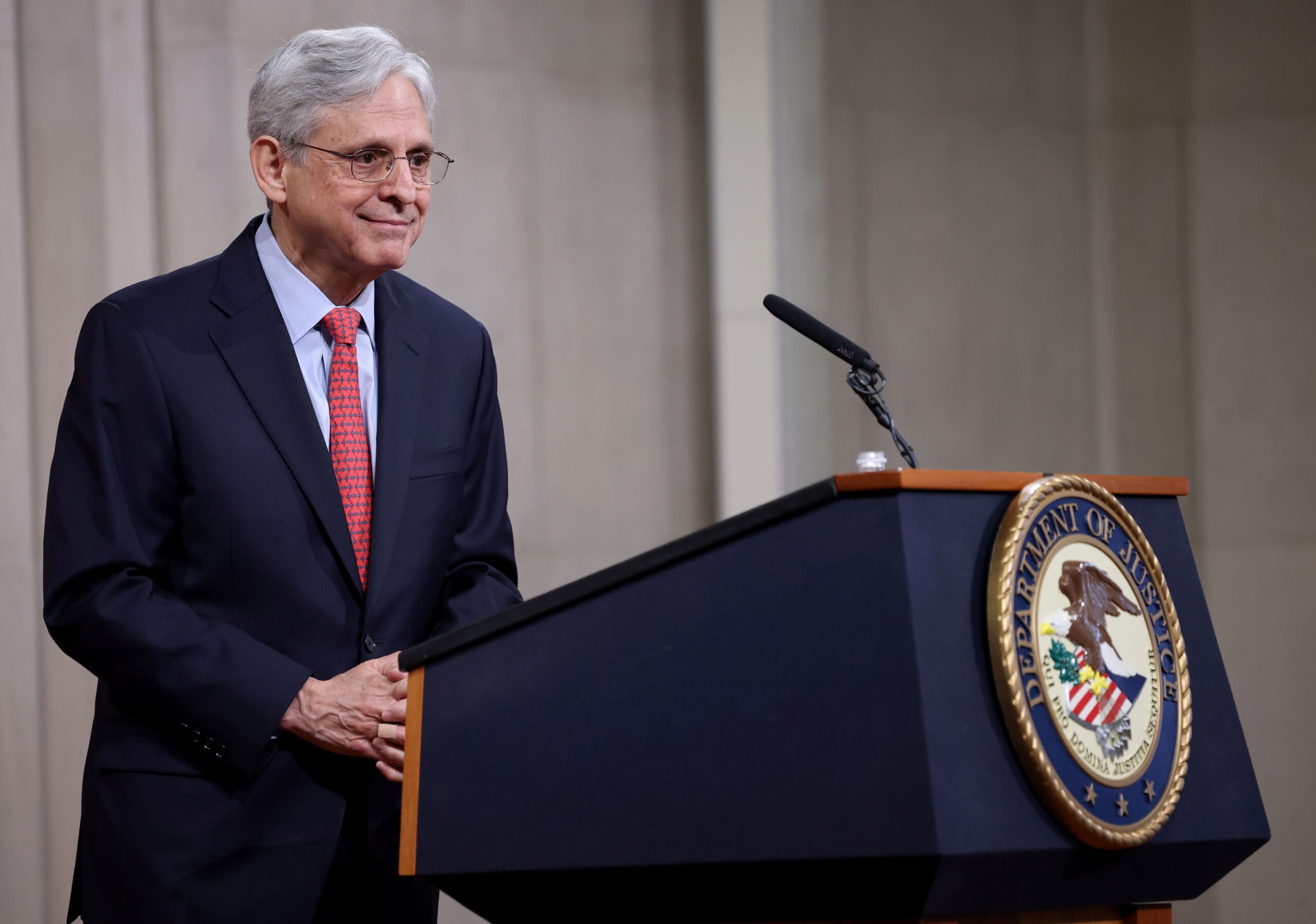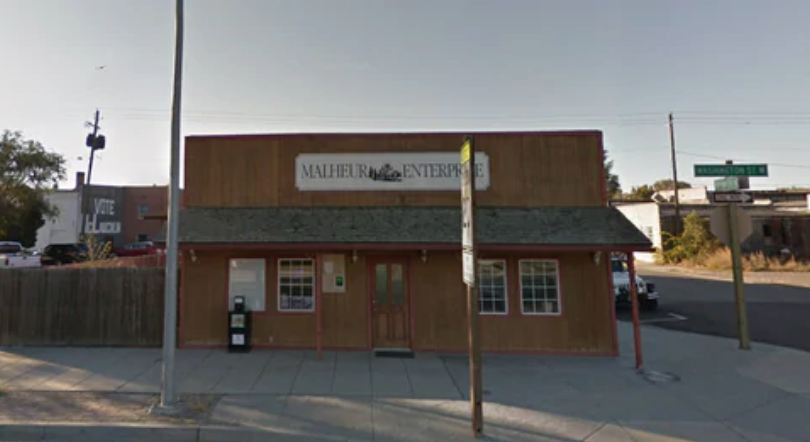Attorney General Garland Announces Protections for Journalists, News Gathering
U.S. Attorney General Merrick B. Garland announced Oct. 26 a revised news media policy that bars the Department of Justice from using subpoenas or other legal processes against journalists to obtain information they’ve retrieved while news gathering.
Next Up: Lawsuit Imminent to Challenge New Arizona Law Restricting the Recording of Police
There's no hesitancy among free press and media legal scholars who are asked whether the law is constitutional. There's consensus: It's not. They base their views on numerous rulings of federal appeals courts on the issue.
Arizona Governor Signs Bill to Restrict Recording Police in Public
Arizona Gov. Douglas Ducey signed into law a bill that would make it illegal to photograph or record a police officer in public from a distance of eight feet without the officer’s permission.
Arizona House Passes Bill That Would Limit Recording of the Police
On February 24th, the Arizona House of Representatives voted to advance a bill that would make it illegal to photograph or record a police officer in public from a distance of eight feet without his or her permission. House Bill 2319 says if an individual is asked by the police to quit filming but continues to do so would face a class 3 misdemeanor and up to 30 days in jail.
Despite numerous legal challenges over the right to record police officers in public, the Supreme Court has not yet ruled on the question of whether citizens have a First Amendment right to record the police. Because of this, only states in judicial districts that have established the right to record as a constitutional right consider it a “clearly established law.”
Attorney General Meets With Media Leaders to Tighten Rules on Leak Investigations
On June 14, Attorney General Merrick Garland met with leaders of The New York Times, CNN, and The Washington Post to strengthen rules for obtaining journalists' records during leak investigations. The meeting took place after several reports emerged saying that the Department of Justice, under the Trump administration, had secretly subpoenaed journalists’ phone and email logs in an effort to uncover sources in stories that had been leaked to the press.
Music Producer “Dr. Luke” Not a Public Figure, NY Appellate Court Rules
Dr. Luke is suing pop star Kesha over claims she made that he raped both her and singer Katy Perry. Free expression groups have argued that courts should interpret the public figure doctrine more broadly in libel suits involving sexual assault claims.
Local Oregon Newspaper Wins Major Public Records Battle
The Malheur Enterprise, a local newspaper, requested documents last October as part of its ongoing investigation into whether a state legislator was using his official position to help his private business. On February 5th, the county's district attorney ordered the government agency to disclose the unredacted documents.
